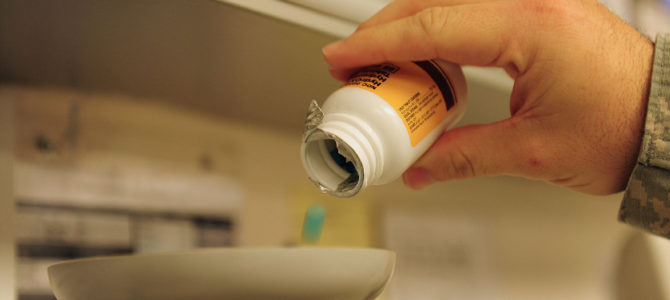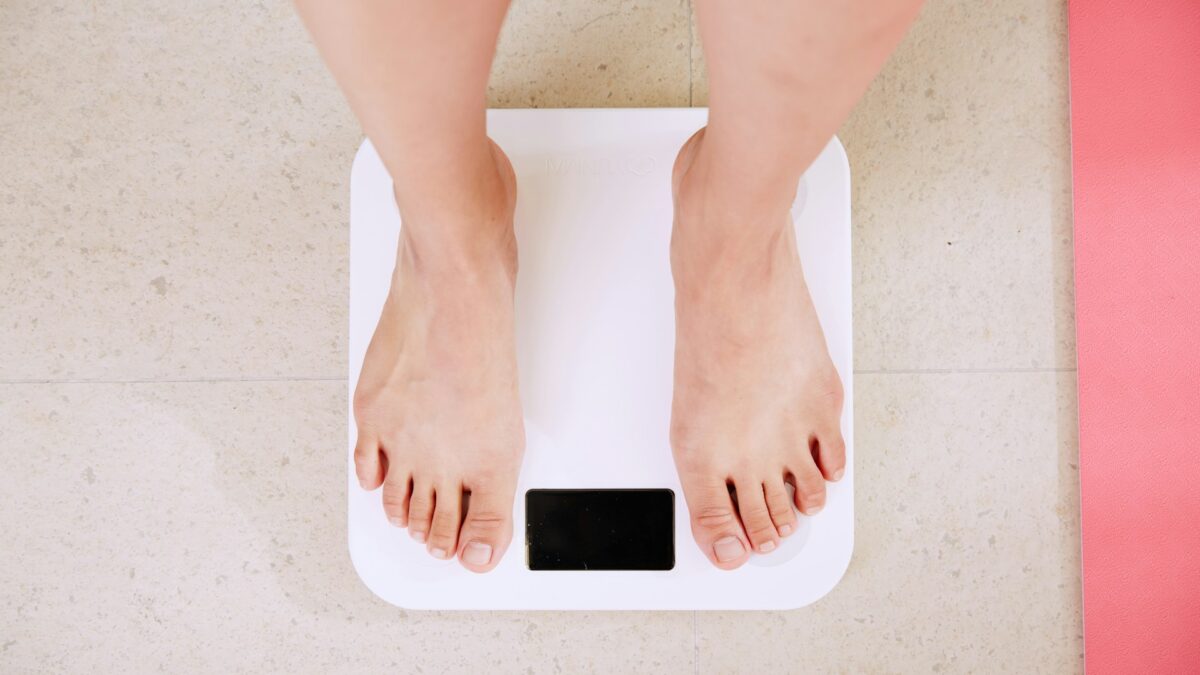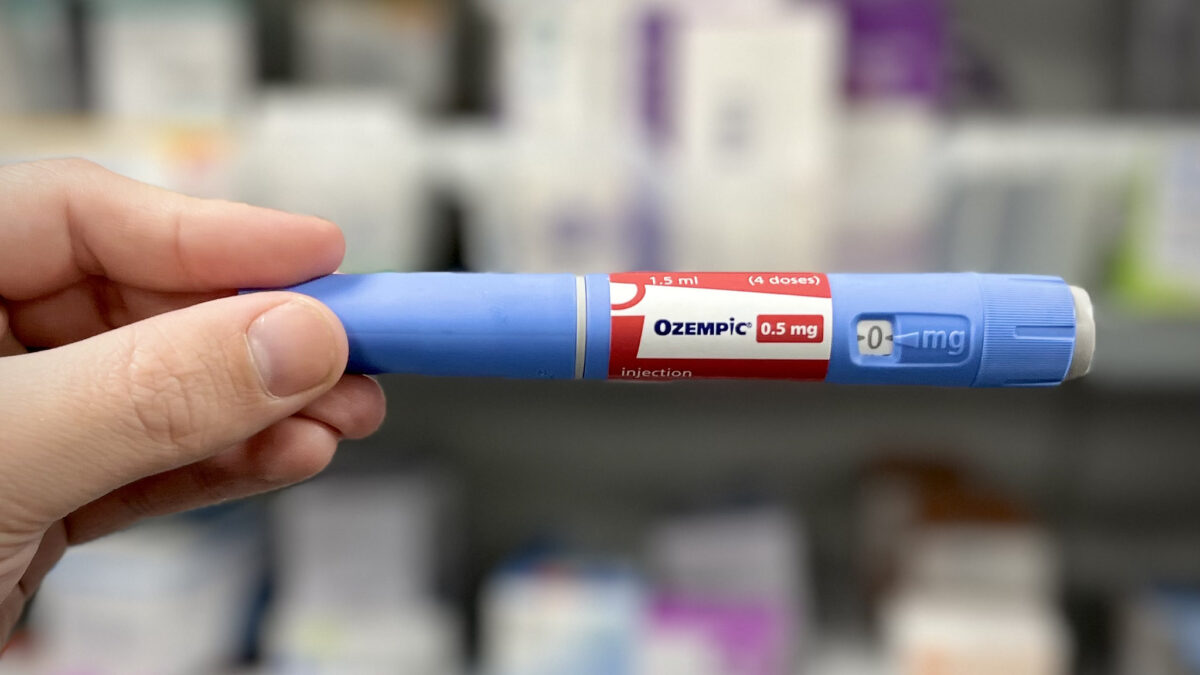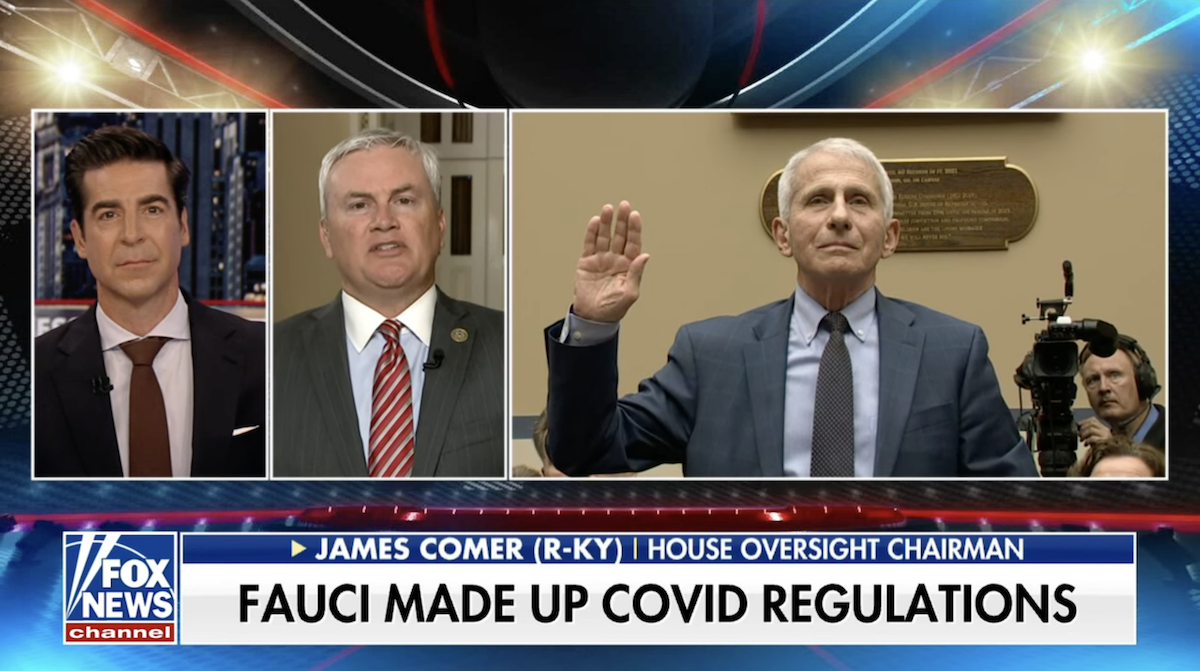
President Trump declared a health emergency over the U.S. opioid crisis. What he didn’t emphasize in his speech was that to fight back against the opioid crisis successfully, we need China’s cooperation.
When most Americans think of “made in China,” often images of cheap shoes and clothes come to mind. But in the last couple of years, China has quickly become a top manufacturer and exporter of synthetic drugs.
Early this year, the Drug Enforcement Agency told Fox News that made-in-China synthetic drugs, including opioids such as fentanyl, are fueling the U.S. opioid epidemic. Newsweek bluntly declared that “Nearly every synthetic drug you can buy in the U.S.—legally or illegally, from cathinones to steroids to the heart medication your doctor prescribed—probably came from China.” The 2016 European Union “Drug Markets Report” calls China “the chemical and pharmaceutical wholesaler and retailer of new psychoactive substances to the world.”
The Internet has quickly turned into the easiest and cheapest means for illicit synthetic drug trades from China to the rest of the world. The EU report shows it only costs some €100 (USD$116) to send one kilogram (2.2 pounds) of a substance from China to Europe in two days, which can then be processed and packaged to serve thousands of individual doses.
Just this October, the U.S. Justice Department indicted two Chinese nationals suspected of manufacturing then distributing fentanyl, which is about 50 times more powerful than heroin, in the United States. Both suspects live in China and distributed fentanyl via online mail order to U.S. customers.
Who Are These Chinese Drug Sellers?
There are several types of Chinese sellers. China’s fast-growing chemical and pharmaceutical industries are the main culprit. Chinese government policy encourages Chinese firms to shift away from labor-intensive manufacturing to the high-tech, higher-margin sectors that fueled the boom of the chemical and pharmaceutical industries.
These industries are made up of thousands of small companies, which makes it more difficult for the central government to regulate them. Many drug precursors are manufactured legally by these firms, who also “constantly tweak their formulas to keep them one step ahead of laws that ban the products based on their chemical composition.”
These precursors are then shipped with no questions asked to anyone willing to pay. The low labor cost of manufacturing and shipping these drugs means fat profit margins. No wonder drug cartels in places such as Mexico and Columbia love to do business with the Chinese.
Another unexpected source of online Chinese sellers are family members of cancer patients who have passed away. A rising cancer rate, aging population, changing attitudes about end of life care, and a government-run pain-management health-care initiative all have pushed many Chinese doctors to prescribe OxyContin, a painkiller that has been at the center of the United States’s opioid endemic, to an increasing number of Chinese patients. When these patients pass away, many of their family members offer to sell or give away the leftover painkillers online. One post was from the sister of a deceased cancer patient, who left behind 101 boxes of OxyContin (more than 1,000 pills) she had been prescribed. Some of these sales made their way to overseas customers as well.
It’s In China’s Interest to Curb the Illicit Drug Trade
While China is exporting synthetic drugs to the rest of the world, China itself isn’t immune from a drug addiction problem. The use of synthetic drugs is on the rise. It was reported that “In 2016 the number of known drug users in China rose 6.8 per cent to 2.505 million. Of these, more than 60 percent consumed synthetic drugs (primarily methamphetamine and ketamine), 38 per cent used opiates such as heroin, and a little more than 1 percent cocaine and marijuana.”
A key feature of the Chinese national identity is the nineteenth-century Opium Wars. China believes it was a great civilization brought low by the drug trade, leading to the “hundred year humiliation” during which foreign powers controlled Chinese domestic policy. This period only ended when the Communist Party seized power, restoring national sovereignty. So it’s in China’s interest to rein in its wild chemical and pharmaceutical industries and crack down on its burgeoning illicit drug trade.
In 2015, China banned more than 100 synthetic chemicals, including some fentanyl products. Early this year, the Chinese government announced it would ban the manufacture and sale of four variations of the synthetic drug fentanyl as of March 1, 2017. These are steps in the right direction, but the Chinese government needs to realize that simply banning chemicals won’t be sufficient because manufactures are constantly exploiting legal loopholes by adjusting their formulas to use something new and more potent.
There’s more China can do. First is to acknowledge that the illicit drug cross-border trade originating from China is a real problem. So far, despite mountains of evidence, the Chinese government has been denying that China is the top synthetic drug manufacturer and exporter. Not willing to recognize the problem means Beijing won’t enforce stricter laws against synthetic drug manufacturing and exporting.
The second thing the Chinese government should do is to cooperate with law enforcement in other countries to bring justice to drug-trading criminals based in China. For example, the two Chinese nationals indicted by the U.S. Justice Department for manufacturing and distributing fentanyl are currently living in China but not in Chinese government custody. Since the United States and China have no extradition treaty, it’s very unlikely these two will ever be brought to justice in the United States.
In this case, the Chinese government needs to step up: get evidence from their U.S. counterparts, start an independent investigation, and if these two Chinese men are proven guilty, they should be subjected to punishment according to Chinese law. If, however, the evidence proves these two men are innocent, Chinese government should share their findings with their U.S. counterparts as soon as possible. Not doing anything is not an option.
The opioid epidemic has taken the lives of more than 300,000 Americans since 2000. Cooperation between the United States and China is a key element to fight back. President Trump is going to visit China in a week. While North Korea is no doubt a top priority on his meeting agenda with Chinese President Xi, I hope he will also discuss the opioid crisis. In President Trump’s own words, this is a “crisis we can no longer ignore.”









